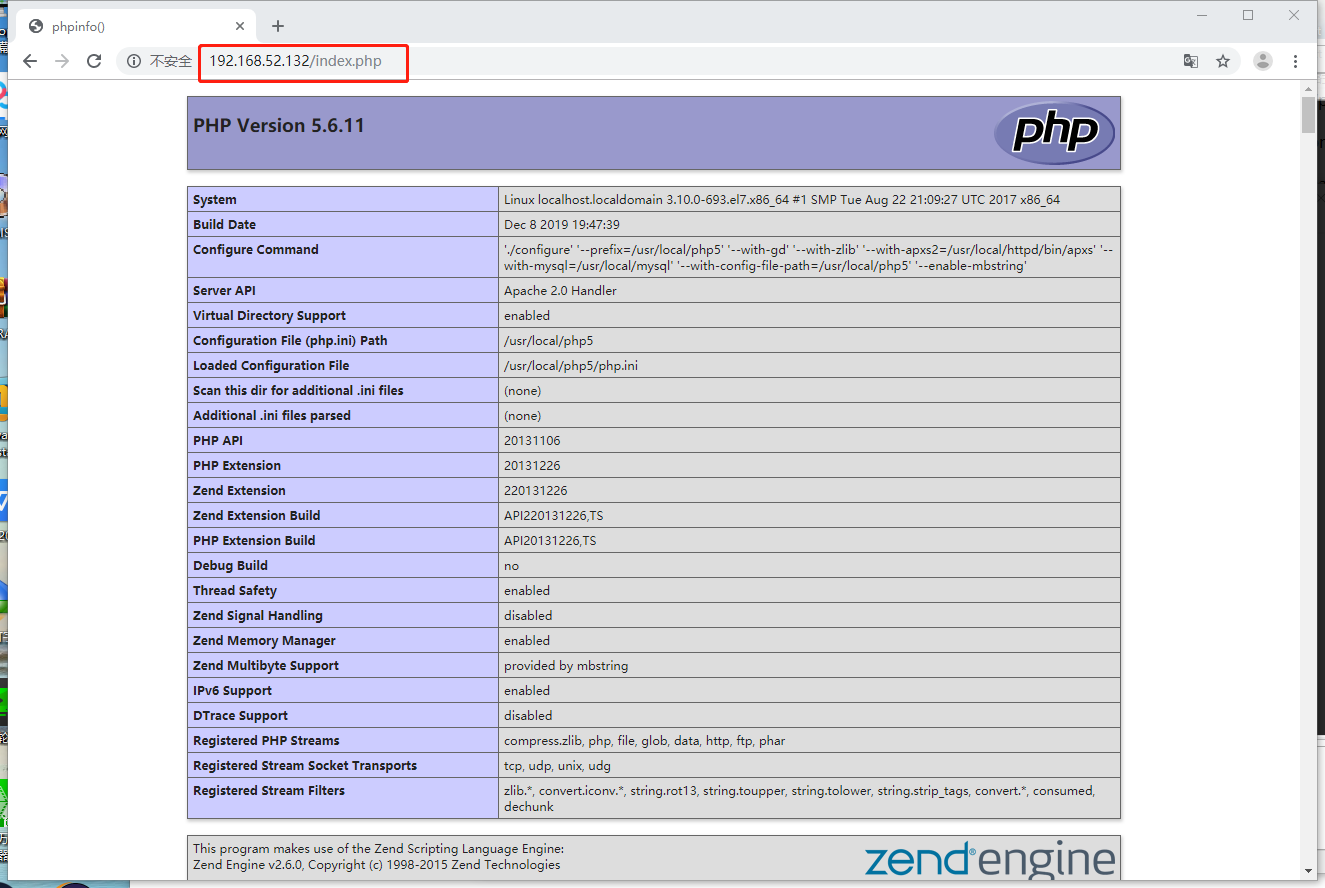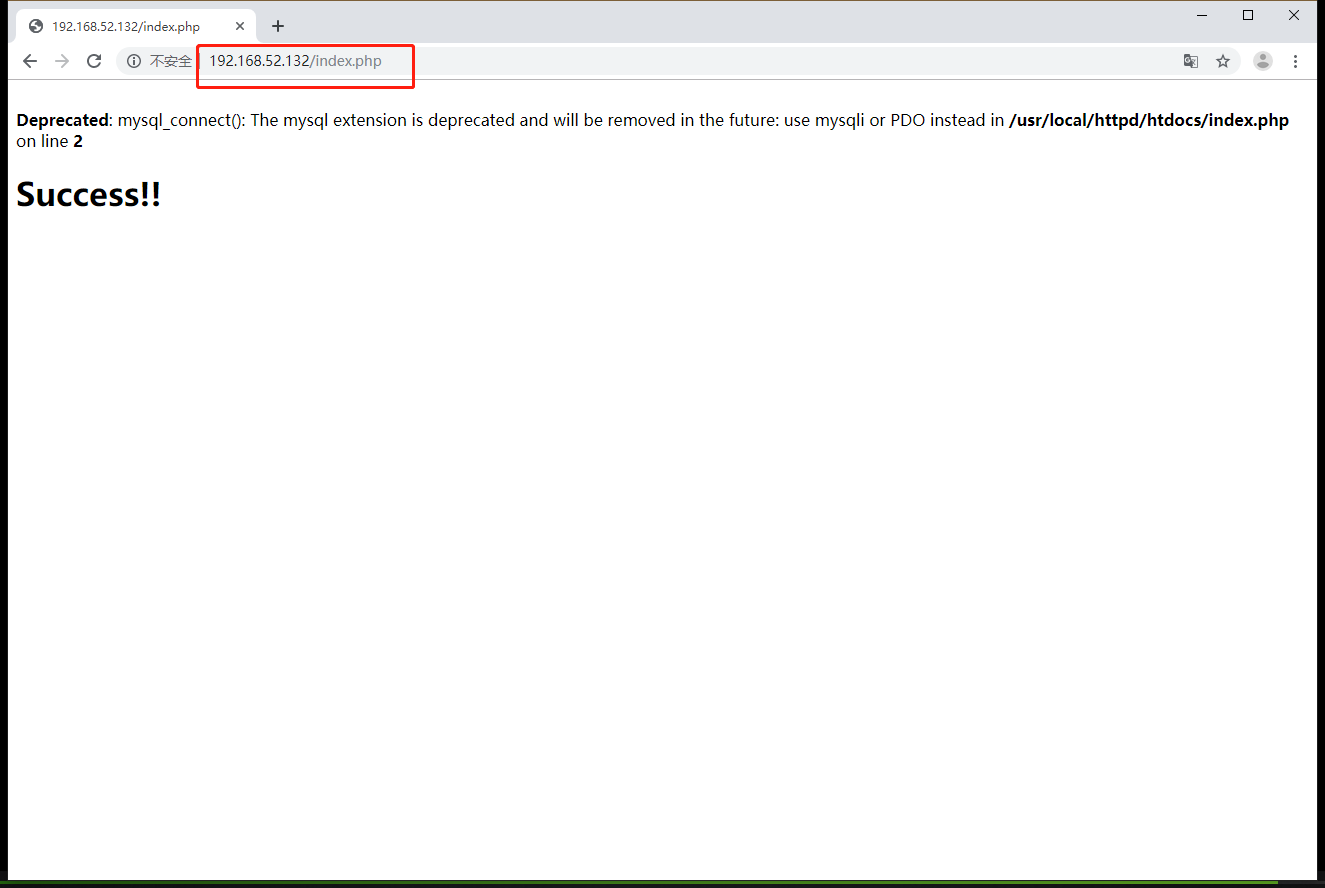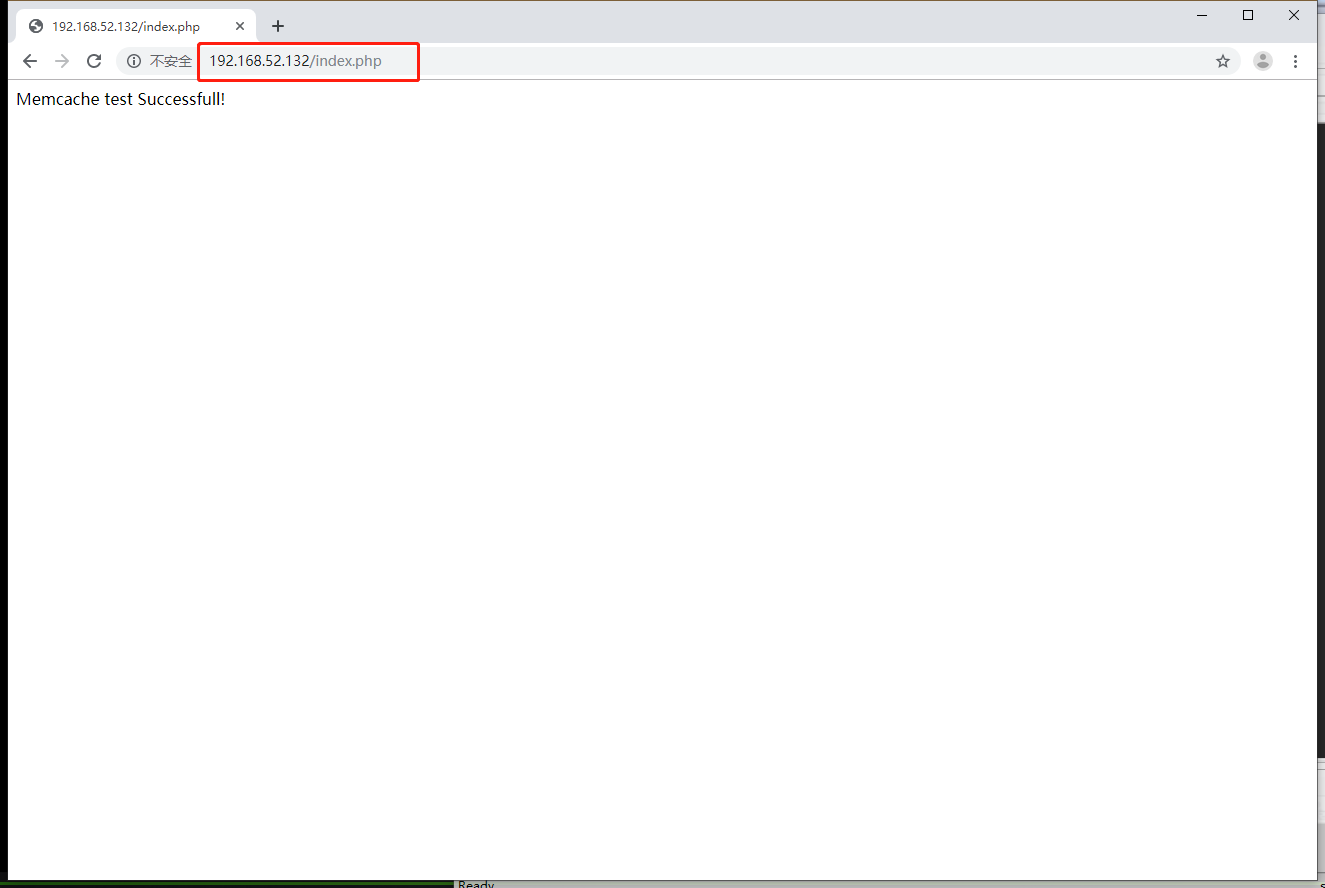1. Introduction to Memcached:
(1) Introduction:
Memcached is a high-performance distributed memory object caching system for dynamic Web applications to reduce database load.It improves the speed of dynamic, database-driven Web sites by caching data and objects in memory to reduce the number of times the database is read.Memcached is based on a hashmap that stores key/value pairs.Its daemon is written in C, but the client can write in any language and communicate with the daemon through the memcached protocol.
(2) Features:
As a fast-running distributed cache server, memcached has the following characteristics:
1. Simple protocol;
2. Event handling based on libevent;
3. Built-in memory storage;
4. Distributed where memcached does not communicate with each other.
(3) Storage method:
To improve performance, data stored in memcached is stored in memcached's built-in memory storage space.Since data only exists in memory, restarting memcached and operating system will cause all data to disappear.In addition, when the content capacity reaches the specified value, unused caches are automatically deleted based on the LRU(Least Recently Used) algorithm.Memcached is itself a server designed for caching, so it doesn't give much thought to data persistence.
2. Configuration of memcached database:
1. Preparing to install the required source packages
[root@localhost ~]# mkdir /mnt/tools [root@localhost ~]# mount.cifs //192.168.100.100/tools/mnt/tools/ ##mount Password for root@//192.168.100.100/tools: [root@localhost ~]# cd /mnt/tools/memcached/ [root@localhost memcached]# ls LAMP-php5.6 magent-0.5.tar.gz memcached-1.5.6.tar.gz libevent-2.1.8-stable.tar.gz memcache-2.2.7.tgz [root@localhost memcached]# [root@localhost memcached]# tar xf libevent-2.1.8-stable.tar.gz -C /opt/ ##decompression [root@localhost memcached]# tar xf memcached-1.5.6.tar.gz -C /opt/ ##decompression [root@localhost memcached]# cd /opt/ [root@localhost opt]# ls libevent-2.1.8-stable memcached-1.5.6 rh [root@localhost opt]#
2. Compile and install memcached
[root@localhost opt]# yum install gcc gcc-c++ make -y ##Install Dependent Environment Package .............//Omitting process [root@localhost libevent-2.1.8-stable]# ./configure --prefix=/usr/local/libevent ##Configure libevent .............//Omitting process [root@localhost libevent-2.1.8-stable]# make && make install ##Compile and install libevent .............//Omitting process [root@localhost libevent-2.1.8-stable]# cd ../memcached-1.5.6/ [root@localhost memcached-1.5.6]# ./configure \ ##Configure memcached > --prefix=/usr/local/memcached \ > --with-libevent=/usr/local/libevent/ .............//Omitting process [root@localhost memcached-1.5.6]# make && make install ##Compile and install memcached .............//Omitting process [root@localhost memcached-1.5.6]# ln -s /usr/local/memcached/bin/* /usr/local/bin ##Easy system identification [root@localhost memcached-1.5.6]#
3. Open memcached
[root@localhost memcached-1.5.6]# memcached -d -m 32m -p 11211 -u root ##Open database service, -d daemon; -m cache size 32M; -p port 11211 [root@localhost memcached-1.5.6]# [root@localhost memcached-1.5.6]# netstat -ntap | grep memcached ##View Port tcp 0 0 0.0.0.0:11211 0.0.0.0:* LISTEN 22448/memcached tcp6 0 0 :::11211 :::* LISTEN 22448/memcached [root@localhost memcached-1.5.6]# [root@localhost memcached-1.5.6]# systemctl stop firewalld.service ##Close Firewall [root@localhost memcached-1.5.6]# setenforce 0 ##Turn off enhanced security features [root@localhost memcached-1.5.6]#
4. Basic operation of memcached database
[root@localhost memcached-1.5.6]# yum install -y telnet ##Install Telnet Service .............//Omitting process [root@localhost memcached-1.5.6]# telnet 127.0.0.1 11211 ##Connect to memcached database Trying 127.0.0.1... Connected to 127.0.0.1. Escape character is '^]'. add username 0 0 7 //Add data (two zeros indicate that the data will never expire without compression and serialization of the identification; an identification number of 7 requires a seven-digit input.) 1234567 ##Enter a 7-bit value STORED ##Added Successfully add users 0 0 7 123 ##Input error value ERROR ##Failed to add get username VALUE username 0 7 1234567 END gets username ##Query Data VALUE username 0 7 1 1234567 END set username 0 0 8 ##Update information, add it if the key name does not exist 12345678 STORED gets username ##Query Data VALUE username 0 8 3 12345678 END replace school 0 0 2 ##Update information, error if key name does not exist un NOT_STORED get shcool ##Query Data END replace username 0 0 9 ##Update information, error if key name does not exist 123456789 STORED gets username ##Query Data VALUE username 0 9 4 123456789 END set school 0 0 4 ##Update information, add it if the key name does not exist 1234 STORED gets school ##Query Data VALUE school 0 4 5 1234 END cas school 0 0 7 5 ##Modify key storage number logging STORED gets school VALUE school 0 7 6 logging END cas school 0 0 8 2 loggings EXISTS append school 0 0 4 ##Append data after key value book STORED gets school VALUE school 0 11 7 loggingbook END prepend school 0 0 2 ##Append data before key value un STORED gets school VALUE school 0 13 8 unloggingbook END delete school ##Clear specified key value data, clear all cached data as flush_all DELETED get school END quit ##Sign out Connection closed by foreign host. [root@localhost memcached-1.5.6]# ##View commands: stats ##show status information stats items ##Returns statistics for all key-value pairs stats cachedump 1 0 ##Returns the key-value pairs for the specified storage space stats slabs ##Display information about individual slab s stats sizes ##Output the size and number of all item s stats reset ##Clear statistics
3. Client Configuration (Deploying LAMP Architecture)
LAMP architecture has been blogged before, to see a detailed explanation can, take a look.There is no explanation below.
LNMP Architecture
1. Deploy LAMP architecture
[root@localhost ~]# mkdir /mnt/tools
[root@localhost ~]# mount.cifs //192.168.100.100/tools /mnt/tools/
Password for root@//192.168.100.100/tools:
[root@localhost ~]# cd /mnt/tools/memcached/
[root@localhost memcached]# ls
LAMP-php5.6 libevent-2.1.8-stable.tar.gz magent-0.5.tar.gz memcache-2.2.7.tgz memcached-1.5.6.tar.gz
[root@localhost LAMP-php5.6]# ls
apr-1.6.2.tar.gz httpd-2.4.29.tar.bz2 mysql-5.6.26.tar.gz
apr-util-1.6.0.tar.gz LAMP-php5.6.txt php-5.6.11.tar.bz2
[root@localhost LAMP-php5.6]#
[root@localhost LAMP-php5.6]# tar xf apr-1.6.2.tar.gz -C /opt/
[root@localhost LAMP-php5.6]# tar xf apr-util-1.6.0.tar.gz -C /opt/
[root@localhost LAMP-php5.6]# tar xf httpd-2.4.29.tar.bz2 -C /opt/
[root@localhost LAMP-php5.6]#
[root@localhost LAMP-php5.6]# cd /opt/
[root@localhost opt]# ls
apr-1.6.2 apr-util-1.6.0 httpd-2.4.29 rh
[root@localhost opt]# mv apr-1.6.2/ httpd-2.4.29/srclib/apr
[root@localhost opt]# mv apr-util-1.6.0/ httpd-2.4.29/srclib/apr-util
[root@localhost opt]# ls
httpd-2.4.29 rh
[root@localhost opt]#
[root@localhost opt]# cd httpd-2.4.29/
[root@localhost httpd-2.4.29]# yum -y install \
> gcc \
> gcc-c++ \
> make \
> pcre-devel \
> expat-devel \
> perl \
> zlib-devel
[root@localhost httpd-2.4.29]# ./configure \
> --prefix=/usr/local/httpd \
> --enable-so \
> --enable-rewrite \
> --enable-charset-lite \
> --enable-cgi
[root@localhost httpd-2.4.29]# make && make install
[root@localhost httpd-2.4.29]# cp /usr/local/httpd/bin/apachectl /etc/init.d/httpd
[root@localhost httpd-2.4.29]# vim /etc/init.d/httpd
# Chkconfig: 35 85 21 //35 level autorun 85th boot 21 shutdown
# description: Apache is a World Wide Web server
[root@localhost httpd-2.4.29]# chkconfig --add httpd
[root@localhost httpd-2.4.29]#
[root@localhost httpd-2.4.29]# vim /usr/local/httpd/conf/httpd.conf
ServerName www.yun.com:80
Listen 192.168.52.132:80
#Listen 80
[root@localhost httpd-2.4.29]# ln -s /usr/local/httpd/conf/httpd.conf /etc/
[root@localhost httpd-2.4.29]# ln -s /usr/local/httpd/bin/* /usr/local/bin/
[root@localhost httpd-2.4.29]# apachectl -t
Syntax OK
[root@localhost httpd-2.4.29]#
[root@localhost httpd-2.4.29]# service httpd start
[root@localhost httpd-2.4.29]# netstat -ntap | grep 80
tcp 0 0 192.168.52.132:80 0.0.0.0:* LISTEN 88064/httpd
[root@localhost httpd-2.4.29]#
[root@localhost httpd-2.4.29]# cd /mnt/tools/memcached/LAMP-php5.6/
[root@localhost LAMP-php5.6]# ls
apr-1.6.2.tar.gz httpd-2.4.29.tar.bz2 mysql-5.6.26.tar.gz
apr-util-1.6.0.tar.gz LAMP-php5.6.txt php-5.6.11.tar.bz2
[root@localhost LAMP-php5.6]# tar xf mysql-5.6.26.tar.gz -C /opt/
[root@localhost LAMP-php5.6]# cd /opt/
[root@localhost opt]# ls
httpd-2.4.29 mysql-5.6.26 rh
[root@localhost opt]# cd mysql-5.6.26/
[root@localhost mysql-5.6.26]# yum install -y ncurses-devel autoconf cmake
[root@localhost mysql-5.6.26]# cmake \
> -DCMAKE_INSTALL_PREFIX=/usr/local/mysql \
> -DDEFAULT_CHARSET=utf8 \
> -DDEFAULT_COLLATION=utf8_general_ci \
> -DEXTRA_CHARSETS=all \
> -DSYSCONFIDIR=/etc \
> -DMYSQL_DATADIR=/home/mysql/ \
> -DMYSQL_UNIX_ADDR=/home/mysql/mysql.sock
[root@localhost mysql-5.6.26]# make && make install
[root@localhost mysql-5.6.26]# cp support-files/my-default.cnf /etc/my.cnf
cp: Whether to Overwrite"/etc/my.cnf"? yes
[root@localhost mysql-5.6.26]# cp support-files/mysql.server /etc/init.d/mysqld
[root@localhost mysql-5.6.26]# chmod 755 /etc/init.d/mysqld
[root@localhost mysql-5.6.26]# chkconfig --add /etc/init.d/mysqld
[root@localhost mysql-5.6.26]# chkconfig mysqld --level 235 on
[root@localhost mysql-5.6.26]# echo "PATH=$PATH:/usr/local/mysql/bin" >> /etc/profile
[root@localhost mysql-5.6.26]# source /etc/profile
[root@localhost mysql-5.6.26]# useradd -s /sbin/nologin mysql
[root@localhost mysql-5.6.26]# chown -R mysql:mysql /usr/local/mysql/
[root@localhost mysql-5.6.26]#
[root@localhost mysql-5.6.26]# /usr/local/mysql/scripts/mysql_install_db \
> --user=mysql \
> --ldata=/var/lib/mysql \
> --basedir=/usr/local/mysql \
> --datadir=/home/mysql
[root@localhost mysql-5.6.26]# ln -s /var/lib/mysql/mysql.sock /home/mysql/mysql.sock
[root@localhost mysql-5.6.26]# vim /etc/init.d/mysqld
basedir=/usr/local/mysql
datadir=/home/mysql
[root@localhost mysql-5.6.26]# service mysqld start
Starting MySQL. SUCCESS!
[root@localhost mysql-5.6.26]# netstat -ntap | grep 3306
tcp6 0 0 :::3306 :::* LISTEN 103429/mysqld
[root@localhost mysql-5.6.26]#
[root@localhost mysql-5.6.26]# service mysqld start
Starting MySQL. SUCCESS!
[root@localhost mysql-5.6.26]# netstat -ntap | grep 3306
tcp6 0 0 :::3306 :::* LISTEN 103429/mysqld
[root@localhost mysql-5.6.26]#
[root@localhost mysql-5.6.26]# mysqladmin -u root -p password "abc123"
Enter password:
Warning: Using a password on the command line interface can be insecure.
[root@localhost mysql-5.6.26]# mysql -u root -p
Enter password:
Welcome to the MySQL monitor. Commands end with ; or \g.
Your MySQL connection id is 2
Server version: 5.6.26 Source distribution
Copyright (c) 2000, 2015, Oracle and/or its affiliates. All rights reserved.
Oracle is a registered trademark of Oracle Corporation and/or its
affiliates. Other names may be trademarks of their respective
owners.
Type 'help;' or '\h' for help. Type '\c' to clear the current input statement.
mysql> \q
Bye
[root@localhost mysql-5.6.26]#
[root@localhost mysql-5.6.26]# cd /mnt/tools/memcached/LAMP-php5.6/
[root@localhost LAMP-php5.6]# ls
apr-1.6.2.tar.gz httpd-2.4.29.tar.bz2 mysql-5.6.26.tar.gz
apr-util-1.6.0.tar.gz LAMP-php5.6.txt php-5.6.11.tar.bz2
[root@localhost LAMP-php5.6]# tar xf php-5.6.11.tar.bz2 -C /opt/
[root@localhost LAMP-php5.6]# cd /opt/
[root@localhost opt]# ls
httpd-2.4.29 mysql-5.6.26 php-5.6.11 rh
[root@localhost opt]# cd php-5.6.11/
[root@localhost php-5.6.11]# yum -y install \
> gd \
> libpng \
> libpng-devel \
> pcre \
> pcre-devel \
> libxml2-devel \
> libjpeg-devel
[root@localhost php-5.6.11]# ./configure \
> --prefix=/usr/local/php5 \
> --with-gd \
> --with-zlib \
> --with-apxs2=/usr/local/httpd/bin/apxs \
> --with-mysql=/usr/local/mysql \
> --with-config-file-path=/usr/local/php5 \
> --enable-mbstring
[root@localhost php-5.6.11]# make && make install
[root@localhost php-5.6.11]# cp php.ini-development /usr/local/php5/php.ini
[root@localhost php-5.6.11]# ln -s /usr/local/php5/bin/* /usr/local/bin/
[root@localhost php-5.6.11]# ln -s /usr/local/php5/sbin/* /usr/local/sbin/
[root@localhost php-5.6.11]#
[root@localhost php-5.6.11]# vim /etc/httpd.conf
AddType application/x-httpd-php .php
AddType application/x-httpd-php-source .phps
<IfModule dir_module>
DirectoryIndex index.html index.php
</IfModule>
[root@localhost php-5.6.11]# vim /usr/local/httpd/htdocs/index.php
<?php
phpinfo();
?>
[root@localhost php-5.6.11]# service httpd stop
[root@localhost php-5.6.11]# service httpd start
[root@localhost php-5.6.11]# systemctl stop firewalld.service
[root@localhost php-5.6.11]# setenforce 0
[root@localhost php-5.6.11]# 2. Test access, LAMP architecture built successfully

3. Modify index.php file
[root@localhost php-5.6.11]# vim /usr/local/httpd/htdocs/index.php
<?php
$link=mysql_connect('192.168.52.132','skyuser','admin123');
if($link) echo "<h1>Success!!</h1>";
else echo "Fail!!";
mysql_close();
?>4. Test whether the database is working properly
[root@localhost php-5.6.11]# mysql -u root -pabc123 ##Enter database Warning: Using a password on the command line interface can be insecure. Welcome to the MySQL monitor. Commands end with ; or \g. Your MySQL connection id is 6 Server version: 5.6.26 Source distribution Copyright (c) 2000, 2015, Oracle and/or its affiliates. All rights reserved. Oracle is a registered trademark of Oracle Corporation and/or its affiliates. Other names may be trademarks of their respective owners. Type 'help;' or '\h' for help. Type '\c' to clear the current input statement. mysql> create database sky; ##Create a database as sky Query OK, 1 row affected (0.00 sec) mysql> grant all on sky.* to 'skyuser'@'%' identified by 'admin123'; ##Title Query OK, 0 rows affected (0.01 sec) mysql> flush privileges; ##Refresh Permissions Query OK, 0 rows affected (0.01 sec) mysql>
5. Visit the web page again and show success to indicate success

6. Install Memcache Client
[root@localhost php-5.6.11]# cd /mnt/tools/memcached/ [root@localhost memcached]# ls LAMP-php5.6 libevent-2.1.8-stable.tar.gz magent-0.5.tar.gz memcache-2.2.7.tgz memcached-1.5.6.tar.gz [root@localhost memcached]# tar xf memcache-2.2.7.tgz -C /opt/ ##decompression [root@localhost memcached]# cd /opt/ [root@localhost opt]# ls httpd-2.4.29 memcache-2.2.7 mysql-5.6.26 package.xml php-5.6.11 rh [root@localhost opt]# [root@localhost opt]# cd memcache-2.2.7/ [root@localhost memcache-2.2.7]# /usr/local/php5/bin/phpize Configuring for: PHP Api Version: 20131106 Zend Module Api No: 20131226 Zend Extension Api No: 220131226 [root@localhost memcache-2.2.7]# [root@localhost memcache-2.2.7]# ./configure \ ##To configure > --enable-memcache \ > --with-php-config=/usr/local/php5/bin/php-config [root@localhost memcache-2.2.7]# make && make install ##Compile Installation
7. Configure PHP and add Memcached components
[root@localhost memcache-2.2.7]# vim /usr/local/php5/php.ini extension_dir = "/usr/local/php5/lib/php/extensions/no-debug-zts-20131226/" extension=memcache.so
8. Modify the index.php file and restart the httpd service
[root@localhost memcache-2.2.7]# vim /usr/local/httpd/htdocs/index.php
<?php
$memcache = new Memcache();
$memcache->connect('192.168.52.149',11211);
$memcache->set('key','Memcache test Successfull!',0,60);
$result = $memcache->get('key');
unset($memcache);
echo $result;
?>
[root@localhost memcache-2.2.7]# service httpd stop
[root@localhost memcache-2.2.7]# service httpd start
[root@localhost memcache-2.2.7]# 9. Client detects whether the server can connect properly
